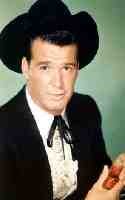
If you had been thinking that the state-run lottery was a fair and honestly run game-of-chance in which your odds of winning were determined by the mathematical laws of probability then you may have been shocked by the news story in the Quad City Times this week that:
The state ombudsman issued a report Tuesday alleging Iowa Lottery officials have failed to adequately protect the enterprise’s customers from fraud and theft by retailers.
Iowa Citizens’ Aide/Ombudsman Bill Angrick said his review of three years’ worth of lottery investigations found numerous customer complaints where leads went unexplored and potential crimes were not pursued.
And, Angrick said in a 210-page report, even when the lottery substantiated complaints against retailers for fraud or theft, in many instances those retailers were not held accountable.
Read the entire article
Most people who were not born yesterday know how crooked gambling scams work, such as the street-corner 3 card monte huckster or the carnival side-show booth. These are games in which there are no winners other than the operators. Anyone appearing to win is either a hired shill who has won nothing other than their pre-agreed share of the take or a mark who has been allowed to win when the stakes are low in order to entice him/her into larger bets. Sometimes people are allowed to walk away from these crooked games winners when there are other potential marks standing around to see this and be drawn in.
If you had been thinking that the association between gambling and gangsters and crime was just a result of gambling being illegal and that a legal state-run lottery or state sanctioned and regulated casinos could be fair and honest then you have been naive. Gambling is a scam by its very nature. If you are involved in any way in gambling you are by necessity in one of two groups. You are either part of the group that organized and runs the game and is profiting from it or you are a mark, a victim, a loser. Proponents of state lotteries and state sanctioned casinos claim that the tax-payers and school-children of the state are part of the group that benefits from the gambling, but given gambling's tendency to turn everyone not actually running the game into marks and victims how likely do you think that is?
Some of the ways we have been made victims by legalized gambling have been argued in this blog previously. New jobs appear to have been created in the community by casinos but it turns out the jobs have merely shifted because jobs have been lost by other entertainment businesses closed because of competition from the casinos. Although gambling adds money to the state coffers there are large costs to the community when formerly law-abiding people become addicting to gambling and commit crimes, sometimes embezzling large amounts of money from PTAs, fire departments, etc. Now we have a report that legalized gambling is turning the retail stores that sell lottery tickets into crooks and thieves who defraud their customers. (The state's reluctance to investigate and punish this wrong-doing because the state is a partner in this scam reminds me of Catch 22 where people are being attacked and killed by a corporation that has been hired to strafe and bomb them and are told that that's good because they are stockholders in the corporation and are therefore profiting from the attack.) What other ways in which governments are corrupted and we are victimized by legalized gambling are yet to be revealed?



1 comment:
I don't know why you say you are shocked to discover crooked gambling. Hasn't gambling always been crooked? Since it has been legitimized in all but two states, it has created a whole new set of problems with new addicts, victims and criminals.A whole new set of jobs for those not employed by the industry itself. What happened to all those "seedy" types associated with the gambling racket? Didn't they just get MBAs and and become legitimate businessmen? A good read is Crapped Out edited by Jennifer Vogel published by Common Courage Press.(1997).
Post a Comment